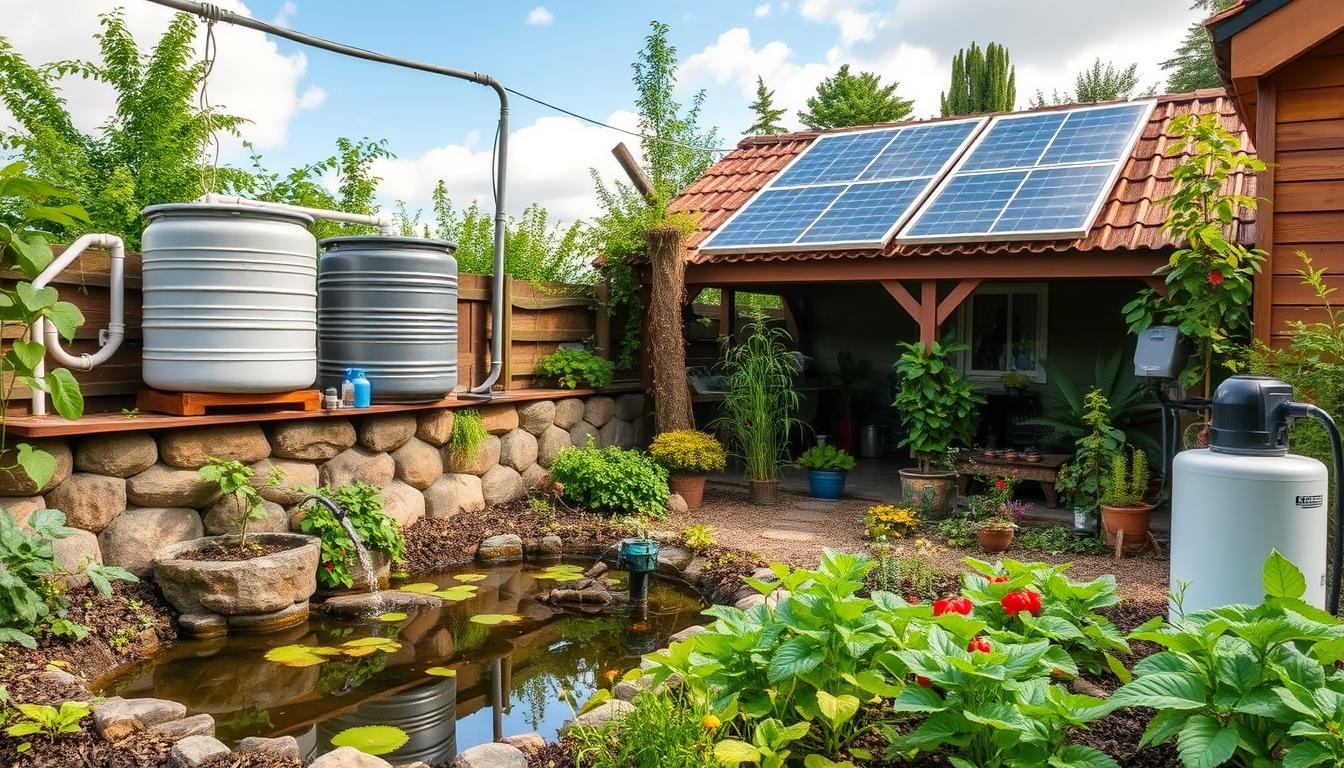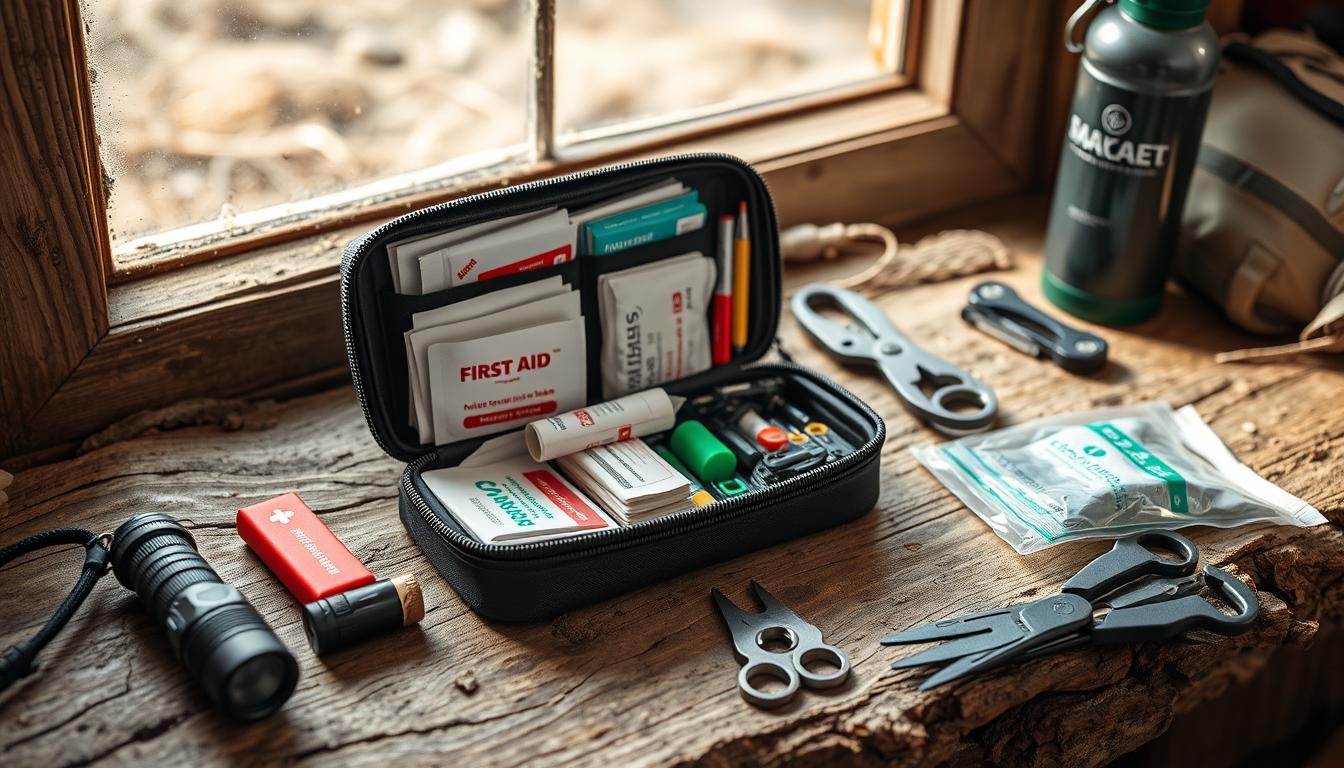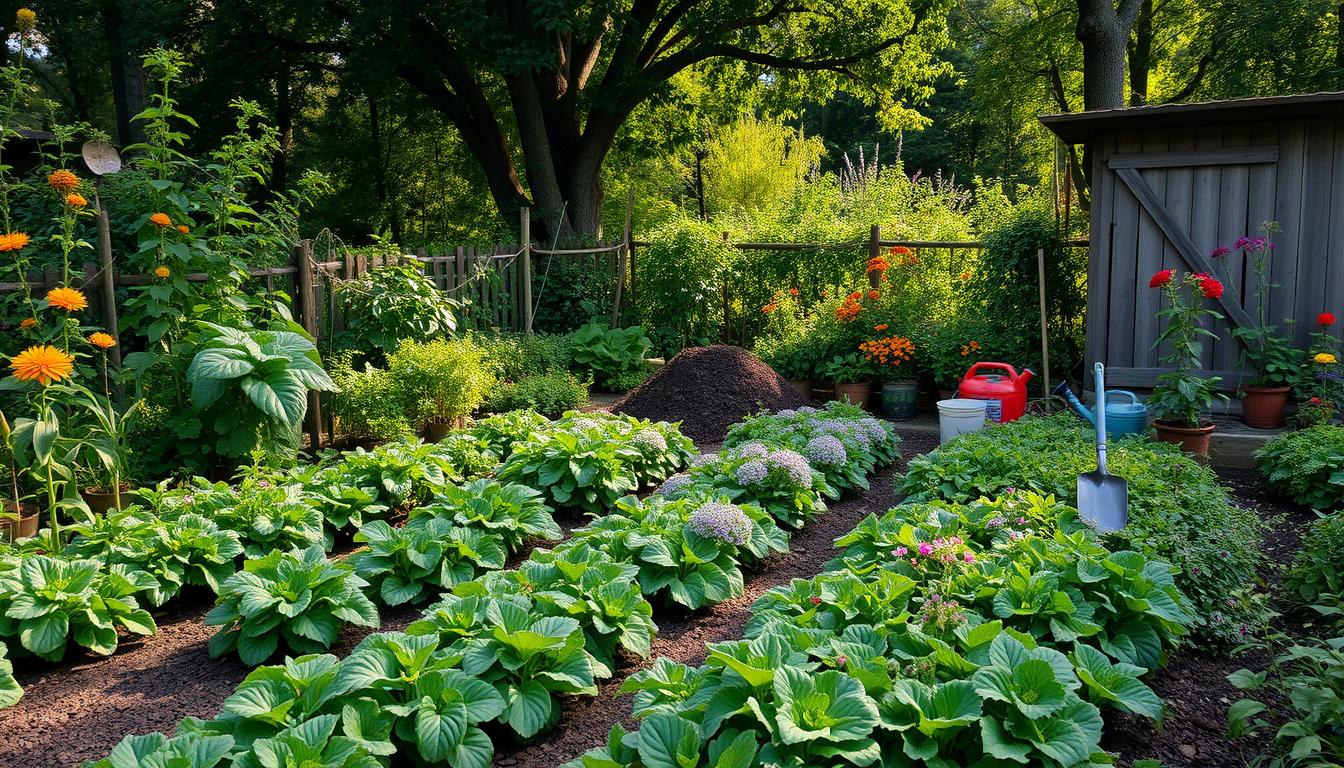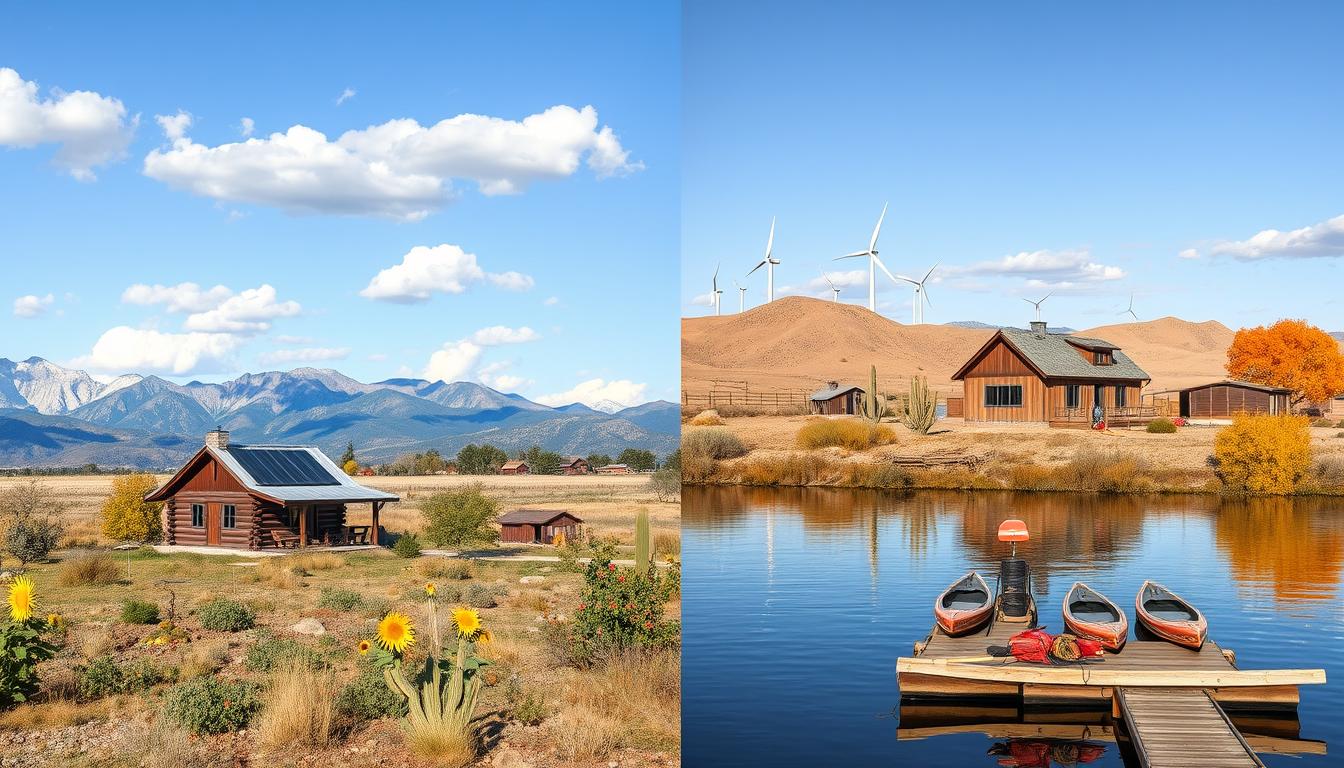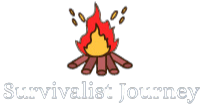In today’s fast-changing cities, knowing how to adapt and survive is key. Whether you’re walking through a busy city or staying safe during a crisis, having the right survival skills is vital. This guide will teach you how to stay safe and independent in the city, getting you ready for anything that comes your way.
Key Takeaways
- Develop a survival mindset to navigate urban challenges
- Build an emergency kit to ensure access to critical supplies
- Secure reliable sources of water and non-perishable food
- Understand essential first aid and medical preparedness
- Prioritize personal safety and self-defense strategies
- Cultivate mental resilience and stress management techniques
- Foster community connections for mutual support and resilience
Survival Skill for Urban Environments
Living in the city comes with its own set of survival challenges. These challenges go beyond what we face in the wild. They include managing limited resources and dealing with crowded places and buildings. To survive in these situations, you need a special mindset.
Understanding the Challenges of City Living
City life has its own set of hurdles that can push your limits. Survival skills here mean dealing with things like not having easy access to nature, infrastructure problems, and crowded areas. Also, cities rely a lot on technology and central systems. So, when these fail, people can be left in a tough spot.
Developing a Mindset for Survival
- Embrace a flexible and adaptable approach to problem-solving, as urban environments often require quick thinking and the ability to adjust to changing circumstances.
- Cultivate a resourceful mindset, recognizing that everyday items and surroundings can be repurposed for survival needs.
- Foster a community-oriented perspective, understanding the importance of collaboration and mutual support in city living.
- Maintain a positive and optimistic outlook, as the ability to remain calm and focused can be crucial in the face of urban emergencies.
Understanding the unique challenges of survival skills in urban environments and developing a resilient mindset helps you prepare for city living. This way, you can handle emergencies better.
“The true test of a man’s character is how he behaves in an emergency.” – Unknown
Building an Emergency Kit
In today’s unpredictable world, being ready for emergencies is key. Having a good emergency kit can help you get through tough times. It should be made for city life, with items that help keep you safe during sudden events.
Your emergency kit should have a lot of important things. First, make sure you have enough clean water for you and your family. Also, include non-perishable, high-calorie foods for when you can’t get regular meals.
Next, add first aid supplies like bandages and antiseptics, and any medicines you need. It’s also smart to have a battery-powered radio and emergency contact info. Don’t forget a flashlight, multi-tool, and emergency blankets for your immediate needs.
Putting together a good emergency kit for your city life means you’re ready for anything. Take time to make sure it has everything you might need. This way, you can stay safe and strong when things get tough.
Water and Food Security
In cities, having clean water and nutritious food is key to surviving emergencies. Getting these basics right can mean the difference between getting through tough times and facing serious problems.
Storing and Purifying Water
Water is a must-have in survival plans. Start by building a strong water storage system. Use containers like food-grade plastic barrels or heavy-duty pouches. Aim for one gallon of water per person each day.
Also, learn how to purify water. Keep filters, purification tablets, or a portable system ready. This way, you can always have clean water.
Non-Perishable Food Options
Having enough food is just as important. Focus on non-perishable items that last a long time. Think canned goods, dried beans, lentils, and whole grains. These give you energy and the nutrients you need.
Add high-calorie foods like peanut butter, powdered milk, and energy bars to your stockpile. These items keep you and your family fed during emergencies.
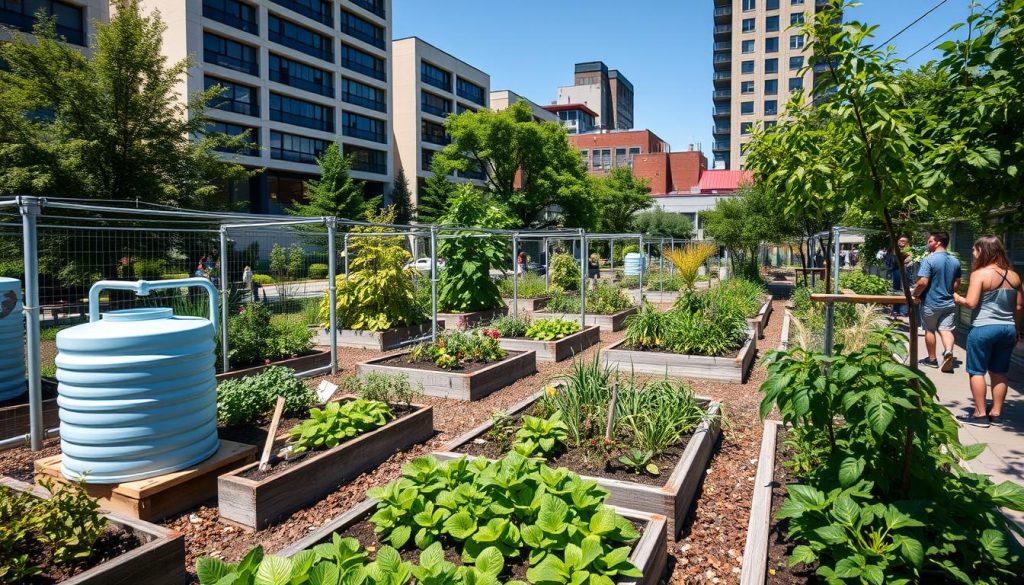
“Preparation is the key to survival. Securing access to clean water and non-perishable food sources can make all the difference when facing urban crises.”
Shelter and Warmth
In the city, finding a safe and warm place to stay is key to survival. Whether you’re at home or need to find shelter elsewhere, having ways to stay warm is essential. We’ll look at how to make your living space cozy and find portable heaters to keep you safe and warm.
Insulating Your Home
Keeping your home warm starts with good insulation. It saves energy and cuts down on bills. Here are some tips to make your home warmer:
- Check and seal any cracks around windows, doors, and other openings to stop heat from escaping.
- Use top-quality insulation like fiberglass or cellulose in walls, attics, and crawl spaces.
- Switch to energy-saving windows and doors to better keep your home warm.
Portable Heating Solutions
Portable heaters are a must-have during power outages or emergencies. They’re small but pack a big punch in keeping you warm. Here are some options:
- Space heaters: These are small and efficient, quickly warming up a small area.
- Portable propane heaters: Great for camping or short-term use, they provide steady heat without electricity.
- Battery-powered heated blankets and clothing: These can keep you warm even when the power is gone.
Always use portable heaters safely and follow the maker’s guidelines. This keeps you and your shelter safe.
Urban Navigation and Transportation
In today’s fast-paced cities, knowing how to get around and find emergency transport is key. Whether you’re moving through crowded streets or getting ready for an emergency, knowing your city’s transport options is vital.
Start by getting to know the city’s public transport. Learn the bus, subway, or train routes, schedules, and where to get on and off. This is super useful in emergencies when usual transport might not work.
Look into other ways to get around too. Think about getting a good bike or learning about ride-sharing for emergencies. Knowing about bike paths and emergency routes can help you move around the city better.
Being flexible is key in city travel. Be ready to change your travel plans if roads are closed or traffic is bad. Keep an eye on your surroundings and be open to finding new ways to get where you need to go.
Learning how to navigate the city and find emergency transport can make you more mobile and safe in the city, even when things get tough. Embrace the city’s challenges and let your knowledge of urban navigation and emergency transportation lead you through with confidence.
“The city is a labyrinth, and the one who knows its secrets can move through it with ease.” – Jane Jacobs, urban theorist
First Aid and Medical Preparedness
In an urban emergency, having the right first aid skills and medical supplies can save lives. A good first aid kit and knowing how to treat injuries are key. This way, you can give critical care when it’s most needed.
Building a First Aid Kit
For any urban survival situation, a well-stocked first aid kit is essential. Begin with the basics like bandages, antiseptic wipes, and gauze pads. Add scissors, tweezers, and thermometers for various medical needs. Remember to include essential medications, such as pain relievers and any personal prescriptions.
Treating Common Injuries
Urban emergencies can bring a variety of injuries, from small cuts to serious trauma. Learn first aid for these common issues:
- Cuts and Scrapes: Clean the wound, apply antibiotic ointment, and cover with a sterile bandage.
- Burns: Cool the area with cool water, apply a sterile dressing, and get medical help for severe burns.
- Sprains and Strains: Keep the injured area still, use ice, and elevate it to lessen swelling.
- Fractures: Keep the injured limb still, use cold packs, and get immediate medical help.
Being prepared with the right first aid knowledge and supplies can help you give vital medical care in emergencies. This can save lives and lessen the effects of unexpected injuries. Remember, first aid, medical preparedness, and urban emergency care are crucial for city living.
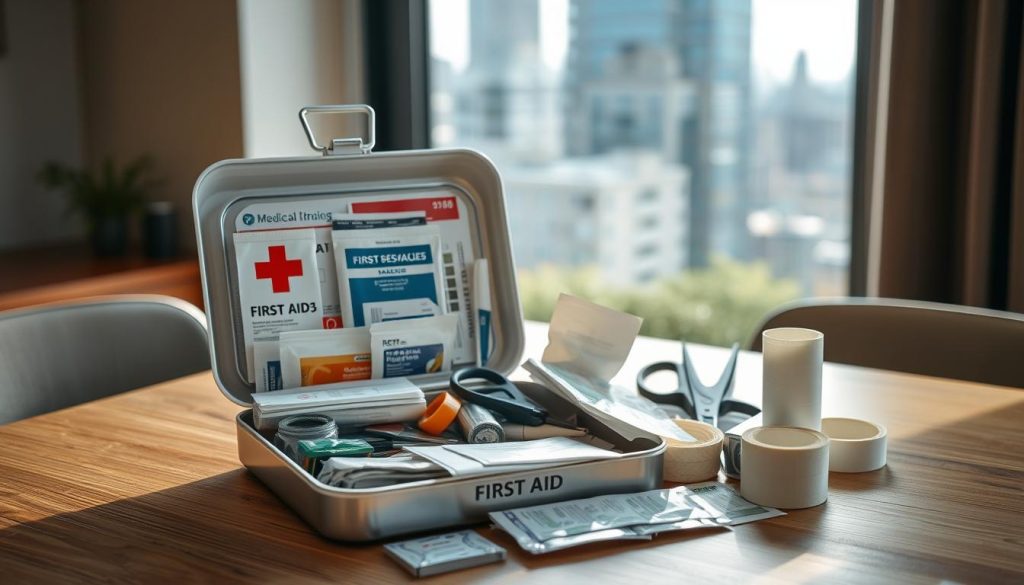
Personal Safety and Self-Defense
In the busy city, keeping yourself safe is key. Learning self-defense skills helps you move around with confidence. It also keeps you and your loved ones safe from danger.
Knowing how to spot and avoid risky situations is crucial for personal safety. Always be aware of what’s happening around you. Look for ways to get out fast and listen to your gut if something doesn’t feel right. Knowing basic self-defense moves, like how to strike or dodge, can help you protect yourself if needed.
To get better at urban survival, think about joining self-defense classes made for city life. These classes teach you how to defend against common attacks and how to stop criminals. They also give you tips on how to avoid fights in the first place.
“The best way to survive a fight is to avoid one altogether. Staying alert and trusting your instincts can go a long way in keeping you safe.”
But it’s not just about fighting. Making sure you’re safe in other ways is also key. Learn about local emergency help like police and crisis lines. Keep their numbers handy. Also, think about getting personal safety tools like alarms or pepper spray for extra protection.
With self-defense knowledge and strategies, you can feel safe in the city. This keeps you and your loved ones safe. Always be proactive about your safety to stay safe from threats.
Communication and Information
In urban emergencies, having reliable communication and access to critical info is key. This is true for natural disasters, power outages, or digital disruptions. Being ready with backup communication and informed can really help.
Backup Communication Methods
When usual ways to communicate fail, having other options is vital. Think about getting a hand-cranked or battery-powered radio for updates. Also, a satellite phone or two-way radio can be a reliable way to connect when cell networks are down.
Learn about emergency messaging apps and services that work without the internet or cell networks. These can help you contact family and emergency services, even when it’s tough.
Staying Informed During Emergencies
Being informed during emergencies helps you make smart choices and adapt. Listen to local radio or TV for updates, safety tips, and evacuation orders.
Connect with local emergency agencies and community groups. They offer important info and resources to get through the crisis.
Social media and online forums can also give you info, but be careful with what you believe. Check your info with trusted news sources and official channels to make sure it’s right.
“Effective communication is the cornerstone of emergency preparedness. By having reliable backup methods and staying informed, you can navigate urban crises with confidence and resilience.”
Mental Resilience and Stress Management
Surviving in the city means building mental strength and managing stress well. It’s tough to keep a positive outlook and stay emotionally strong in the city. But, with the right strategies, you can come out stronger from tough times.
It’s key to build mental resilience in the city. This means you can recover from hard times, handle anxiety, and keep your sense of purpose and control. Practicing mindfulness, exercising regularly, and getting support from friends and family can help build mental resilience.
Managing stress is vital for city living. The fast pace, unexpected problems, and high pressure can hurt your health. Using stress-reduction methods like deep breathing, journaling, and fun activities can keep you balanced and avoid burnout.
“The greatest weapon against stress is our ability to choose one thought over another.” – William James
By focusing on mental resilience and stress management, you can face the city with more confidence and calm. These skills help you get through tough times and make life better, letting you enjoy the city’s changes and challenges.
Strategies for Building Mental Resilience
- Practice mindfulness and meditation
- Engage in regular physical exercise
- Maintain a support network of family and friends
- Develop a positive outlook and focus on what you can control
- Embrace challenges as opportunities for growth
Effective Stress Management Techniques
- Implement regular relaxation practices, such as deep breathing or yoga
- Prioritize self-care activities, such as getting enough sleep and eating a healthy diet
- Limit exposure to stressful stimuli, such as news or social media, when needed
- Seek professional help if stress becomes overwhelming
- Maintain a work-life balance and make time for leisure and enjoyment
Community Building and Networking
When cities face challenges, the strength of community and networking is key. By connecting with neighbors and building strong social networks, you boost your readiness. This helps you handle tough times better.
It’s vital to have strong community bonds for resilience. Talk to your neighbors, plan block parties, or join local events. These actions build a sense of belonging and a support system for emergencies.
But don’t stop at your neighborhood. Look for others who care about urban preparedness and survival. Join online groups, go to workshops, or help out in community projects. These connections offer valuable info, resources, and a place to belong in a group focused on city resilience.


